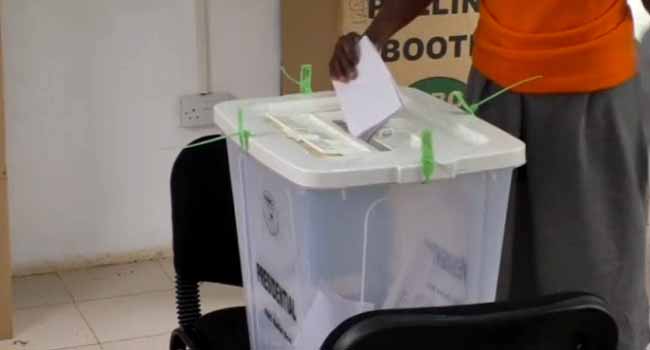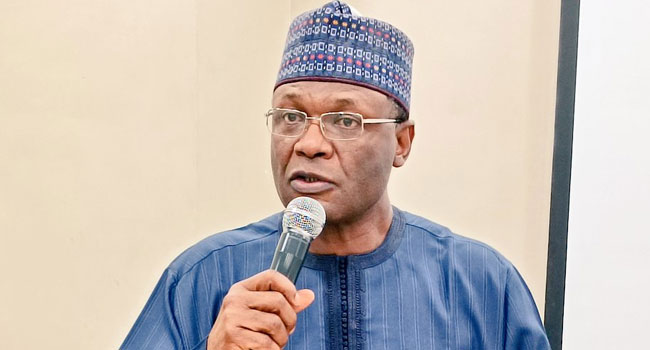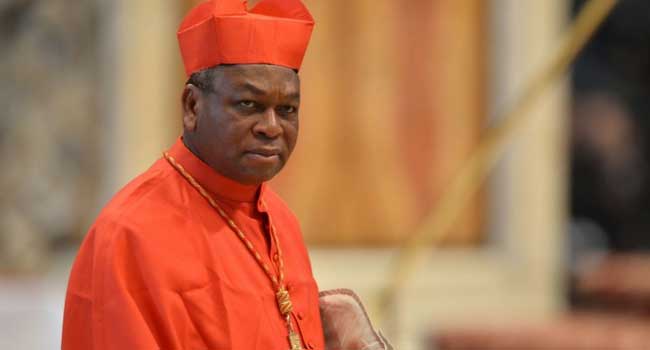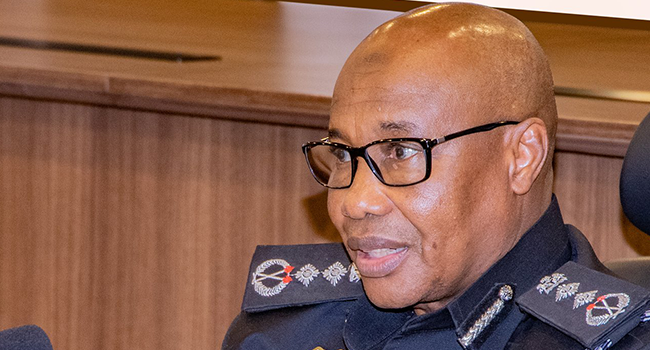Kenyans took to the ballot Tuesday, August 8 in a highly contested general election. At least 19,611,423 million registered voters were set to take to the ballot, but only 75 per cent of the voters turned out on the polling day.
Eight candidates battled it out in the presidential race, 1,892 candidates sought Member of Parliament seats, 11,857 candidates vied for Member of County Assembly, 211 gubernatorial candidates, 256 senatorial candidates and 299 sought Woman representative positions. Election materials were dispatched to the 40,883 polling stations across the country prior to the elections day, with IEBC officials among them Chief Executive Officer Ezra Chiloba and Commissioner Roselyn Akombe expressing satisfaction with their preparations.
By 6:00 pm local time, the vote counting exercise in the Presidential election kicked off in majority of the polling stations with President Uhuru Kenyatta starting off with a lead after garnering 2,812 votes against NASA Presidential flag bearer’s 2,050 votes in the first projection by poll body IEBC.
However, voting was delayed in at least 15 polling stations mainly in Turkana County due to heavy rains that caused logistical challenges, therefore, hampering efforts by IEBC officials to deliver ballot material.
IEBC Chairman Wafula Chebukati said 4 stations opened late in Turkana North, 8 in Loima, 2 in Turkana Central and one in Wajir South due to logistical challenges. In his second media address, Chebukati said delays were also reported at 3 stations in Laikipia North due to insecurity but police have been deployed, with a mix-up in Ndia and Nakuru East also resolved.
As Kenyans woke up on Wednesday, incumbent President Uhuru Kenyatta had garnered 6,627,485 votes, representing 55.21% of the votes counted, out of the 12,005,172 valid votes in 32,218 out of 40,883 polling stations.
His closest rival National Super Alliance Candidate Raila Odinga had 5,279,763 votes, representing 43.98% of the votes counted as of Wednesday morning. A total of 149,634 votes had been rejected with the disputed votes at 1,066. President Uhuru gained momentum hours later, polling 7, 886 796 votes against Raila Odinga’s 6 499 372 million votes, with 386 219 rejected votes.
To this end, the opposition NASA dismissed the results transmitted by the Independent Electoral and Boundaries Commission, IEBC, claiming incidents of fraud. NASA presidential candidate Raila Odinga wanted the transmission of the results delayed, claiming the electoral commission has been transmitting results which do not conform to those contained in Form 34A from the constituency tallying centres.
He further stated that the electoral body denied opposition agents access to the Form 34A, which is contrary to assurances by IEBC. He also claimed that earlier results from NASA agents showed him leading centers 300 polling centers, contrary to results that were being transmitted by IEBC, showing President Uhuru Kenyatta in the lead. However, Jubilee Party Secretary General Raphael Tuju dismissed demands by NASA that the transmission of the results be delayed, accusing the opposition of being insincere.
Addressing journalists at the Bomas National Tallying Centre, IEBC Commissioner Roselyn Akombe said the commission might alter the results being transmitted, in case they do not conform to the Forms 34D from the constituencies. Akombe added that the electoral agency was yet to get the forms from Returning officers in the constituencies. At the same time, IEBC CEO Ezra Chiloba said the technical hitch experienced earlier only affected the display of the results being transmitted and not the figures. He said the issue has since been rectified, but cautioned that more delays are expected since most of the remaining centres don’t have 3G or 4G network coverage.
At the same time, IEBC CEO Ezra Chiloba said the technical hitch experienced earlier only affected the display of the results being transmitted and not the figures. He said the issue has since been rectified, but cautioned that more delays are expected since most of the remaining centres don’t have 3G or 4G network coverage.
As the results trickled in, NASA Presidential Candidate Raila Odinga argued that the election results, including the presidential, gubernatorial and parliamentary elections, were manipulated after hackers allegedly gained access to the IEBC electronic system. The NASA leader said they had evidence to justify the hacking claims which he says led to President Uhuru Kenyatta’s lead in the presidential election provisional results.
Raila further noted that the hackers accessed election database using passwords stolen from slain IEBC ICT deputy director Chris Musando. Following this, the electoral body IEBC promised to look into the allegations by opposition NASA that their systems have been manipulated. Commission chair Wafula Chebukati said the original form 34A’s and 34B’s from the constituency tallying centres would be assessed before final results are given.
With the stalemate at hand, Acting Interior CS Fred Matiang’i moved in to assure Kenyans of their security saying they have nothing to worry about and should continue with their normal business. Matiang’i appealed to Kenyans to allow IEBC to continue with collating and announcing final results for all seats without any hitches. Moments later, two people were shot dead in Nairobi’s Mathare area after they allegedly attempted to attack police officers during a protest over the provisional presidential election results.
In a press statement the same evening, IEBC Chief Electoral Officer Ezra Chiloba refuted claims by NASA leaders led by Raila Odinga that the election transmission system had been compromised. Chiloba assured Kenyans that the Kenya Integrated Electoral Management System and electoral transmission systems were not interfered with as alleged, saying the commission was unable to substantiate NASA claims.
The IEBC boss also indicated all presidential candidates had been granted access to election results on Forms 34A, signed by Presiding Officers and agents from the 40,883 polling stations. IEBC Commissioner Abdi Guliye however confirmed that there were attempts to infiltrate the system, but said no one managed to access it as claimed by opposition NASA. By this time, President Uhuru Kenyatta surpassed 8 million votes, with results from 39,629 out of 40,883 polling stations against Odinga’s 6.6 million votes.
To this end, election observers gave their views with regards to the polls. The East Africa Community Election Observation Mission commended the electoral body IEBC for conducting a well-organized election despite facing several challenges. Speaking while releasing a preliminary report on the election, Head of EAC Election Observation Mission Prof Edward Rugumayo said the EAC team was satisfied with the voting process, but it recommended for several changes to the IEBC among them the decongestion of polling stations to enhance efficiency.
The International Conference on the Great Lakes Region election observation team led by Makumbi Kamya also lauded the IEBC on how the polls were conducted, but the team urged the Commission to conduct civic education on the voting process to reduce the number of rejected votes.
African Union election observer mission declared that the August 8th general election was peaceful and tallying process by IEBC was also conducted transparently. Led by Former South African President Thabo Mbeki, AU said NASA was unable to back its claims that IEBC results transmission systems were hacked. Mbeki however urged NASA led by Raila Odinga to seek redress via IEBC and other available means, while denying claims by NASA that the observers failed to investigate alleged irregularities. The AU observers however noted that the election was marred by some minor hitches, while urging all political stakeholders led by IEBC to come together to address concerns being raised.
At the same time, the Commonwealth Observer Mission applauded the IEBC for overseeing a peaceful general election. Former President of Ghana and head of Commonwealth Observer Mission in Kenya John Mahama said his team was impressed by the organization during the Election Day and appealed for calm as the Commission continued to announce winners in the polls.
Mahama appealed to losers in the polls to use legal means to challenge disputed results. On its part, European Election Observer Group called for patience as Kenyans waited for IEBC to announce final results. They also challenged anyone disputing the election results to use the right available channels.
Led by Marietje Schaake, the EU Observer Group appealed to all candidates who will lose in the concluded general election to resolve their issues by filing petitions in court. Schaake lauded IEBC for how it handled the voting and results transmission process, even as she called for better handling of poll technology and probing of firms hired to avail and service them. The EU observers however faulted voter intimidation and deployment of security forces, demanding an independent probe into murder of IEBC ICT boss Christopher Musando and effects on the elections.
Former US Secretary of State John Kerry expressed confidence that IEBC had a strong system to ensure ballots cast across the country were accurately reflected in the final results. Kerry, who leads Carter Centre Observer Mission, urged Kenyans to be patient as IEBC handled the stalemate over the contested provisional results released.
The former US Secretary in the same vein urged all political players to respect the ongoing process of verification of Forms 34A and other presidential results tallying and transmission systems. Kerry called on all political leaders to use available electoral and judicial processes to challenge any issues they have with IEBC poll results backed by evidence. Kerry, who heads the Carter Center Observer Mission, said there were adequate mechanisms in the judicial systems and election laws to ensure checks for an accountable and transparent process.
The United States Embassy in Nairobi has welcomed the statements made by international and domestic missions observing the Kenyan elections. In a statement, US Ambassador Bob Godec says, observers fielded by the US Embassy were equally impressed by the process. Godec further urged all parties and their supporters to peacefully and patiently await the IEBC’s announcement of official results and follow due process in case of any disputes. The US Ambassador also welcomed the commitment by the poll body to fully investigate any allegations of fraud, with the engagement of all election stakeholders.
Addressing members of the press on Thursday 10th August, Opposition NASA demanded that Raila Odinga be announced the winner of the Presidential elections, even as they criticized the observers for missing the point and instead focusing on the cosmetics aspects of the electioneering process.
Presidential campaign head Musalia Mudavadi claimed Odinga trounced President Uhuru Kenyatta in the Tuesday poll, with information from their sources within IEBC showing Raila had a total of 8.4 million votes against Uhuru’s 7.8 million votes.
However, IEBC Chair Wafula Chebukati however stressed that the transmission of the presidential results had not been completed, downplaying claims by the opposition NASA. Chebukati urged Kenyans to be patient saying that the commission is independent and not subject to control from any quarters.
Meanwhile Kenyans are set to know who between President Uhuru Kenyatta and Raila Odinga won in Tuesday’s Presidential election by noon today. IEBC Chair Wafula Chebukati is optimistic all presidential results from returning officers would have trickled have arrived at the national tallying center at the Bomas of Kenya by midday.





